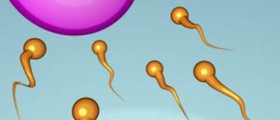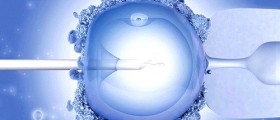
Intracystoplasmic sperm injection is an extremely specialized procedure not offered in every fertility clinic, but the treatment is usually very effective. Couples are normally candidates for ICSI when the male partner's concentration of sperm is less than two million for each sperm sample (ejaculate), and there are problems with motility and morphology. Or when the man has a sperm delivery problem and the sperm for ICSI is directly extracted from the scrotum. This may be the case after a vasectomy, for example. In a normal IVF cycle, one egg is put into the same small space with a lot of sperm, usually at least one million. Some sperm will reach that egg, but will then still have to be able to penetrate its outer shell.
This is not possible for sperm with poor movement and shape, and a low sperm count further means that there will be fewer sperm to try. ICSI eliminates the need for this process. as one previously analyzed and selected sperm is injected into the middle of the egg. ICSI success rates will be different for every clinic and will depend on many other factors like maternal age and health too. As with regular IVF, there are various reasons why a cycle can fail. On the whole, this specialized procedure is highly effective, however.














_f_280x120.jpg)


Your thoughts on this
Loading...